Episodes
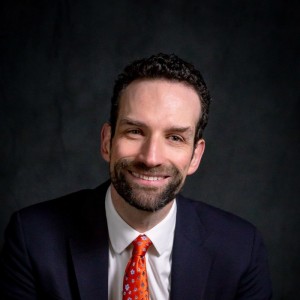
Monday Aug 23, 2021
Ep 131 - Jordan Wales and the Moral Theology of AI
Monday Aug 23, 2021
Monday Aug 23, 2021
- Jordan Wales, PhD, who teaches theology at Hillsdale College in Michigan, spoke with Paul and Bill about his research at the intersection of robotics and religion.
- He discussed a compelling concern in the future relationship between human beings and technology. In particular, the concern, about which he spoke at the 2021 conference of the Society of Catholic Scientists, dealt with the interaction between individuals and the entities Wales calls “apparently personal artificial intelligence” (APAI).
- APAI products are already becoming commonplace in the world of commerce, as this BBC article discusses. People will be increasingly able to purchase, and interact with, virtual friends or babysitters or therapists, for example, Dr. Wales pointed out.
- This raises moral questions related to personhood, covering both the APAI product and the user of that product. The product will not have an inner life representative of what we think of as a person, although the definition of person has an interesting history influenced by scholars such as Saint Augustine. Human beings can express and influence their own understandings of personhood through their interactions with APAI. These understandings may lead to various types of interaction, ranging from pride and manipulation to excessive empathy, and one middle ground would consist of appreciation for the humanity that underlies the production and information/formation of the APAI product, Dr. Wales pointed out.
- As the use of APAI grows, there are also concerns about how the aggregated human “input” into the experience of APAI personalities may cause a flattening-out of human perspectives on the unique qualities of each person. One current example of the trajectory for these concerns comes from the use of the auto-correct feature by Google for writing. Long-term possibilities include such features of interactions not only affecting our choices of words and expressions, but also influencing what subjects we think about and how we think about them. This highlights the moral principle that ultimately we must retain our unique personal identities and wisely discern how to exercise our responsibility and restraint in allowing some possible applications of APAI to influence us, Dr. Wales said.
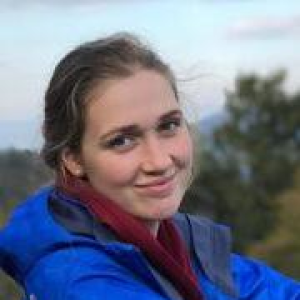
Monday Aug 09, 2021
Episode 130 - Natasha Toghramadjian’s Research into Earth-Shaking Impacts
Monday Aug 09, 2021
Monday Aug 09, 2021
- Welcome to this 130th episode of our podcast. Here’s a lively conversation between two geoscientists—testifying to the opportunities for Society of Catholic Scientists (SCS) members to enjoy discussions which are at once elevated by their personal values and grounded in their diverse, expert explorations of God’s creation.
- Paul spoke with Natasha Toghramadjian, a Ph.D. student in geophysics—and seismology in particular—at Harvard University. She performs wide-ranging research on earthquake dynamics and risks in California and around the world. She spent a year in Armenia on a US Fulbright research grant to design a study on future earthquakes there and the connection between risk preparedness and regional politics.
- Toghramadjian, a student member of the SCS, was a speaker at the 2021 national conference in Washington, DC. See the video of her talk here, at about the 7-hour, 19-minute mark. The talk was titled, “Earthquakes, their Consequences, and the Jesuit Pioneers of Seismology.”
- This podcast conversation included Toghramadjian’s mentions of the earthquake hazards in Oklahoma and the Newport-Inglewood Fault in California, considered more dangerous than the San Andreas Fault for the Los Angeles region. A note from Natasha: at one point just before the 16 minute mark, she said "40 meters" when she meant "40 miles onshore."
- She discussed with Paul the common but wrong view that we hold Christian beliefs despite natural evidence. Scientists use natural evidence, including the enduring laws of physics, chemistry, and biology, in their attempts to understand God’s creation more fully. The two agreed that science and religion are in harmony as paths for pursuing the truth amid great mystery.
- A “keeper” quote from Toghramadjian: “Every human you encounter is an imperfect representation of whatever they say they stand for. . . . It’s very easy to point to a bad example, a person, rather than point to the source material that we’re all trying to follow but we all inevitably fall short of because we’re fallen.”
Show notes prepared by TSSM co-host Bill Schmitt
Sunday Aug 08, 2021
Bonus Episode - WOFI Faith & Science Summit
Sunday Aug 08, 2021
Sunday Aug 08, 2021
Word on Fire will be holding a Faith and Science Summit August 9-12 (starting tomorrow!). It will feature at least nine speakers, including the SCS' own Jonathan Lunine and Karin Oberg.
Among the topics discussed will be
- The history of the Church and science, including a wealth of details that get glossed over by the "conflict hypothesis"
- Specific coverage of what went wrong between the Pope, cardinals, and Galileo, and why that's far from a typical example of how the Church treats scientists
- The counterexample of George LeMaitre
- Theological motivations *for* doing science from the perspective of the Christian faith
- Insights from science that have enriched our appreciation of creation, the physical universe, and our own human origins
- Catholic theology and speculation about the possibility of extraterrestrial life
Find out more at:
https://wordonfire.institute/faith-and-science-summit
If you're a Word on Fire Institute member:
https://wordonfire.institute/faith-and-science-summit-wofimembers
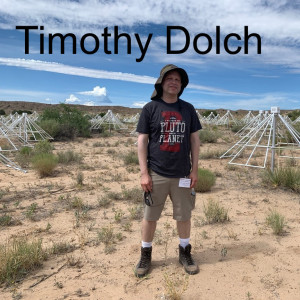
Monday Jun 28, 2021
Episode 128 - Radio Astronomer Signals Wonderment of ET Life
Monday Jun 28, 2021
Monday Jun 28, 2021
- Paul and Bill interviewed Timothy Dolch, Ph.D., assistant professor of physics at Hillsdale College. Dr. Dolch is a member of the Society of Catholic Scientists, and he spoke in June at the Society’s 2021 conference, titled, “Extraterrestrials, AI, and Minds Beyond the Human.”
- His talk, “The Search for Extraterrestrial Intelligence: An Overview,” offered his perspectives as an astrophysicist with expertise in radio astronomy. The talk, alongside others from the conference’s Saturday session, can be viewed here.
- Here are some links to terms used during the conversation. What is a parsec? What are the transient luminous events known as red sprites and blue jets? What is the Low-Frequency All-Sky Monitor operated at Hillsdale? What are SETI and the Arecibo Message? What is the Square Kilometer Array telescope now being built?
- As Dr. Dolch mentioned, part of the discussion at the conference dealt with differing expectations about the process of evolution as it might happen in extraterrestrial life. He referred to another speaker, Simon Conway Morris, Ph.D., an earth scientist studying evolution at the University of Cambridge.
- Dolch mentioned Solaris, a science fiction novel later made into a film. You can view the film here. This classic work imagines an alternative kind of conscious extraterrestrial life form—other than what human beings might call a person.
Our discussion with Dr. Dolch about the Hillsdale community included a mention of the college’s Center for Constructive Alternatives.
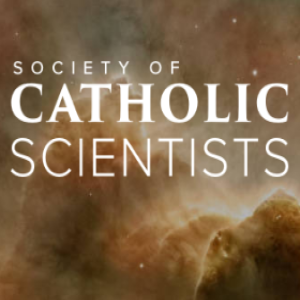
Tuesday Jun 08, 2021
Episode 127 - SCS Meeting 2021
Tuesday Jun 08, 2021
Tuesday Jun 08, 2021
Paul and Bill provide an on the scene review of the Society of Catholic Scientists Conference 2021 at the Washington, D.C. Hilton. The themes were Extraterrestrial Life, Artificial Intelligence, and Minds beyond the Human.
As an added service, here are some links provided by the after dinner speaker, Jennifer Wiseman, to works and groups dedicated to faith - science dialogue:
Book: "The Book of the Cosmos: Imagining the Universe from Heraclitus to
Hawking" (Editor Prof. Dennis Danielson, UBC; Perseus, 2000)
Book: "The Language of God", by Francis Collins (Director of the U.S. Human Genome
Project; Free Press, 2006)
Organizations and Websites:
Society of Catholic Scientists! catholicscientists.org
Dialogue on Science, ethics, and Religion (DOSER), American Association for the
Advancement of Science: aaas.org/doser
sciencereligiondialogue.org
Sinai and Synapses: sinaiandsynapses.org
American Scientific Amilation (ASA) asa3.org
(network of scientists, engineers, teachers, and science enthusiasts Interested in
the relationship of science and Christian faith)
Biologos.org
Science for the Church: scienceforthechurch.org
Scientists in Congregations: scientistsincongregations.org
Faraday Institute for Science and Religion: www.faraday.cam.ac.uk
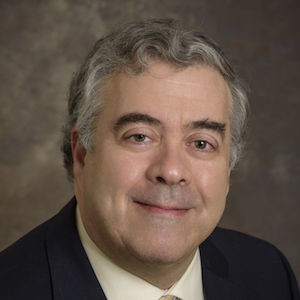
Monday May 31, 2021
Episode 126 - Society of Catholic Sciences Preview with Stephen Barr
Monday May 31, 2021
Monday May 31, 2021
- Paul and Bill welcomed Stephen Barr, Ph.D., president of the Society of Catholic Scientists (SCS), for a return visit to TSSM. Dr. Barr, a theoretical particle physicist, is emeritus professor in the Department of Physics and Astronomy at the University of Delaware. We talked with him about the Society of Catholic Scientists and the organization’s fourth annual conference, scheduled June 4-6, 2021, in Washington, DC.
- The growing membership of SCS now totals about 1,500 in multiple countries. The organization was founded in 2016 by Dr. Barr and five other scientists. Barr, author of Modern Physics and Ancient Faith, described the upcoming conference, which is titled “Extraterrestrials, AI, and Minds Beyond the Human.” See details of the conference The SCS has posted an announcement about live-streaming of conference talks for those who have not registered to attend in-person.
- The talks will be livestreamed at https://catholicscientists.org/conference2021. The schedule of talks can be found HERE. During the talks, questions for the speakers can be emailed in to questionsSCS2021@gmail.com. As time permits, some questions will be selected from those emailed in and posed to the speakers during the Q&A sessions.
- Barr gave an overview of the event and the speakers.
- One of the speakers, Prof. Lawrence Principe, Ph.D., will also be the recipient of the Society’s Saint Albert Award. The award, bestowed annually, is named for St. Albert the Great, patron saint of the natural sciences. Dr. Principe, a historian of science at Johns Hopkins University, has been a leading voice in dispelling the myth of a historical conflict between science and religion, Dr. Barr pointed out. A course titled “Science and Religion” is offered by Principe through the “Great Courses” organization and is available online.
- The conference’s keynote speaker is Christopher Baglow, Ph.D., director of the Science & Religion Initiative in the McGrath Institute for Church Life at the University of Notre Dame. Dr. Baglow, whose unique high school textbook Faith, Science, and Reason: Theology on the Cutting Edge has now been published in a second edition, was a guest on a previous episode of the TSSM podcast.
- Barr pointed out that, although the Society did not hold a conference in 2020, it greatly expanded its website, which now includes instructional materials about science and religion. One feature is a curated historical collection of concise bibliographies about important scientists who were practicing Catholics. Barr thanked his collaborator Andrew Kassebaum for that content, which is more authoritative than other online lists of “Catholic scientists.”
- The SCS continues to work to expand its services to teachers and students. The SCS website, at org, already contains numerous videos of talks from past conferences. Dr. Barr said the Society’s goals include facilitating wide-ranging intellectual and spiritual fellowship for Catholic scientists and helping to evangelize a secular culture that is infused with thoughts and messages prioritizing science and technology. The work of spreading the faith through science will increasingly use new media.
- Another form of evangelization is the Society’s support for Church celebrations of “Gold Masses” in numerous localities in the United States and elsewhere. Gold Masses, often planned as Votive Masses in honor of St. Albert the Great, are celebrated for members of the science professions. The Masses are part of the effort to increase the Society’s grass-roots activities through local and campus chapters.

